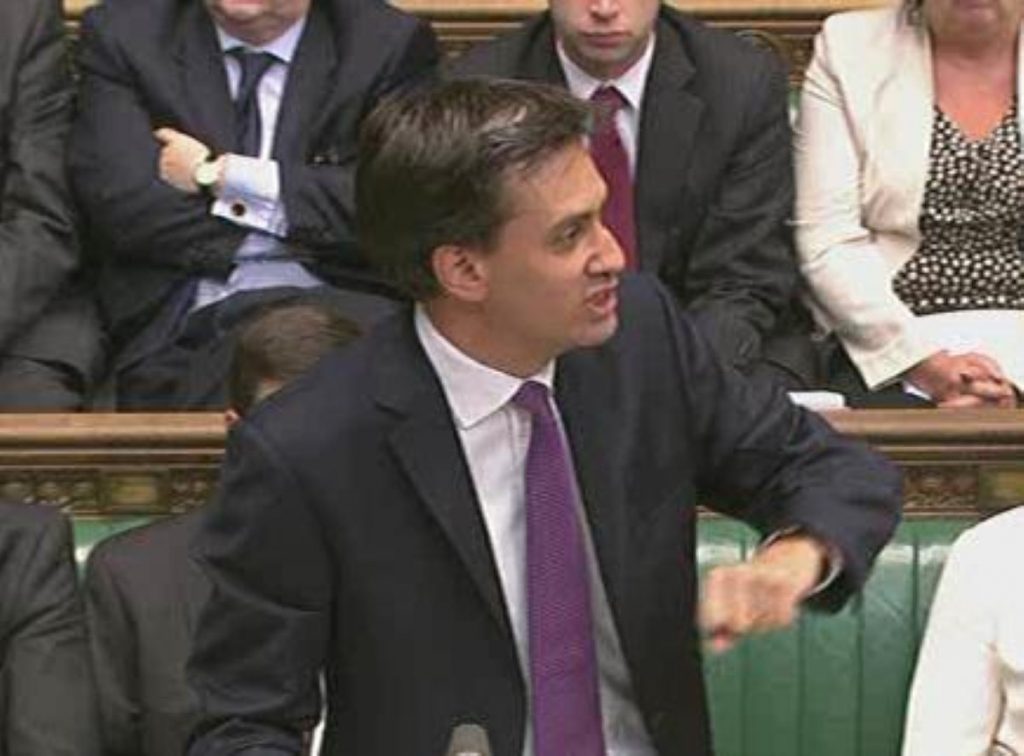Syria debate verdict: A terrible moment for Ed Miliband
David Cameron couldn't even bring himself to look at the Labour leader today. As soon as Ed Miliband stood up, the prime minister started flicking through his notes. He did this for minutes on end, until the Labour leader gave way for someone else to speak. Then Cameron would lean his head back on the bench and listen. The body language between the two has never been so poisonous.
Immediately afterwards, Downing Street issued a furious briefing against the Labour leader, calling him "incoherent" and accusing him of "flipping and flopping".
It's true Miliband had a tough time in the Commons chamber. He stood up and spoke far too slowly as he expressed his revulsion at the chemical weapon attack. It seemed practiced and insincere. Then his tempo went through the roof, becoming overly eager and even a little squeaky.
The sad part is that it would have been marvellous to hear a Labour leader with such confidence in their uncertainty at any other point over the last 20 years.


Miliband is right to define himself against Blair. Where the former prime minister fitted facts around policy, Miliband was going out of his way to get all the facts before a policy could be formulated.
In matters of war and peace, a sombre attitude and a patient temperament are standards of quality. Miliband is to be commended for aspiring toward them.
But in this case, where the reality is so stark and the moral and practical costs of inaction so grim, his reluctance to accept a government compromise seemed increasingly cynical.
On a charitable interpretation, it is supremely bad historical luck that Miliband is in charge now and Blair was in charge in 2003. On a less charitable interpretation – which happens to be the one Downing Street is promoting – this was outright party political point scoring which would give "succour" to Assad.
The Labour leader had one fundamental problem, which is that he could not offer a satisfactory explanation of the difference between Labour's motion and that of the government.
According to Miliband, the government motion would support the "principle" of conflict, whereas his merely laid out a "roadmap".
The trouble is his standards of evidence are impossible for the British government to satisfy. No matter what we might wish, the level of proof will never live up to the standards of a criminal trial.
Cameron's argument was that on the balance of probability it was barely conceivable that a rebel force without the means to do so should bomb their own position, especially given the Assad regime's documented possession of chemical weapons. It is as close to certainty as we are likely to come. To ask for more is to demand inaction.
Miliband's roadmap leads to a location we already know to be inhospitable: the UN security council, where an inevitable veto by China and Russia is waiting. It is theatre and only that. The Labour leader denied coining the phrase "UN moment", but that is what he is talking about.
The security council must be given the evidence so it can be seen to reject it, not because it is right that it should consider it, or even that any reasonable person would ever seriously entertain the idea that they would. You could draw a picture of a donkey and Russia would veto it right now.
Cameron had gone out of his way to make the motion tolerable: it would ensure the security council was briefed on the weapons inspectors' report and would then require a second Commons vote before it authorised war.
It was really very difficult to work out why someone who supported one motion should not be able to support another. The differences are trivial. Painting them as matters of high principle did not bode well.
By refusing to accept the watered-down government motion Miliband took what could have been an important moment of parliament challenging the executive over foreign relations and turned it into day-to-day point scoring.
Ed Balls did that annoying thing with his face. George Osborne sneered and snarled like he does every PMQs. MPs on all sides heckled, despicably.
It was a shameful episode and a wasted opportunity. But of all the disappointing things going on in the chamber, Miliband was probably the worst.









